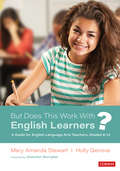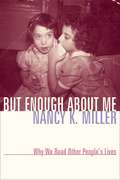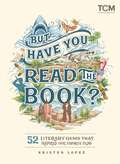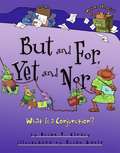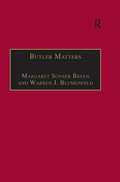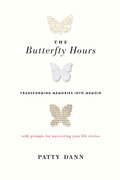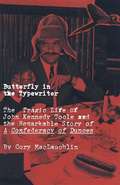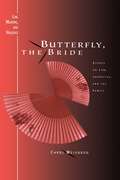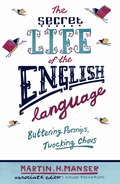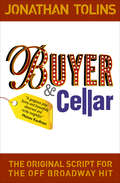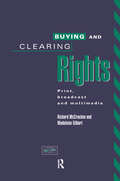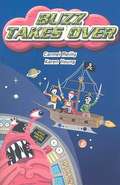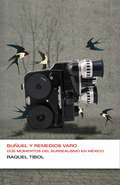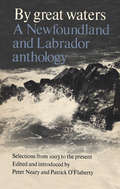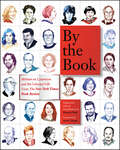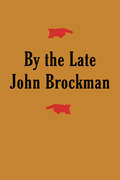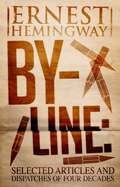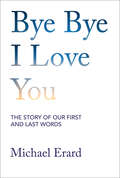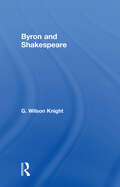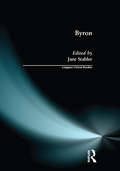- Table View
- List View
But Does This Work With English Learners?: A Guide for English Language Arts Teachers, Grades 6-12
by Mary Amanda Stewart Holly Ann GenovaSecondary ELA teachers, be excited: here at last is that crash course in utilizing the best of what we already know about teaching reading, writing, and language to ensure our English learners thrive. Take Penny Kittle and Donalyn Miller&’s reader&’s workshops. Take Kylene Beers and Robert Probst&’s &“signposts.&” Take the best writing techniques advanced by the National Writing Project. Take Jim Burke&’s essential questions for life. Award-winning EL authorities Mandy Stewart and Holly Genova describe immediate adaptations you can put in place to simultaneously build your ELs&’ language and literacy, while affirming their languages, cultures, and unique lived experiences. A rare blend of the humane and practical, But Does This Work with English Learners? is a book on how to leverage our ELs&’ full linguistic repertoires in the ELA classroom, while remaining sensitive to those barriers that could restrict learning. With this book as your guide, you&’ll learn how to: Look beyond the labels, and better understand the diversity of ELs, English language proficiency levels, and sociopolitical influences Teach and assess through reader&’s workshop, recognizing where comprehensible input fits in and adapting recurring features like support, choice, conferencing, and academic conversations Teach and assess through writer&’s workshops, including modifications to quick-writes, minilessons, conferencing, sharing, and more Teach through structures and community with classroom schedules and behavior norms, and activities like All About Me Paragraphs and Six Things You Need to Know About Me Listicles Embrace identity in inquiry cycles via research and family interviews, mentor texts and essays, pictorial autobiographies, memory paragraphs, and more Answer your own FAQs such as How do I teach students if I don&’t know their language? What about grammar? How do I teach the grade-level ELA standards while I teach the language? &“As you read this book,&” Mandy and Holly write, &“our hope is that you will begin to see your students as multilinguals—people who already have language as well as a wealth of knowledge and are just adding English to that great repertoire.&” If you have even a single English learner in your classroom, we urge you to read this book and institute its practices. Right away! &“Mandy Stewart and Holly Genova have given us a primer for the evolving complexities of our classroom melting pots, a map for navigating the murky waters of regulations, and most importantly, a recipe for opening our arms to children from all over the world. They welcome them with thoughts like &‘A foreign accent is a sign of bravery.&’&” --GRETCHEN BERNABEI, Coauthor of Fun-Sized Academic Writing for Serious Learning &“After reading this book, I was left with the feeling that I learned something new on every page--something that I had previously either wondered about or struggled to understand. Mandy Stewart and Holly Genova are the guides we all need to help us understand and better address the needs of our English learners.&” --JIM BURKE, Author of The English Teacher&’s Companion
But Does This Work With English Learners?: A Guide for English Language Arts Teachers, Grades 6-12
by Mary Amanda Stewart Holly Ann GenovaSecondary ELA teachers, be excited: here at last is that crash course in utilizing the best of what we already know about teaching reading, writing, and language to ensure our English learners thrive. Take Penny Kittle and Donalyn Miller&’s reader&’s workshops. Take Kylene Beers and Robert Probst&’s &“signposts.&” Take the best writing techniques advanced by the National Writing Project. Take Jim Burke&’s essential questions for life. Award-winning EL authorities Mandy Stewart and Holly Genova describe immediate adaptations you can put in place to simultaneously build your ELs&’ language and literacy, while affirming their languages, cultures, and unique lived experiences. A rare blend of the humane and practical, But Does This Work with English Learners? is a book on how to leverage our ELs&’ full linguistic repertoires in the ELA classroom, while remaining sensitive to those barriers that could restrict learning. With this book as your guide, you&’ll learn how to: Look beyond the labels, and better understand the diversity of ELs, English language proficiency levels, and sociopolitical influences Teach and assess through reader&’s workshop, recognizing where comprehensible input fits in and adapting recurring features like support, choice, conferencing, and academic conversations Teach and assess through writer&’s workshops, including modifications to quick-writes, minilessons, conferencing, sharing, and more Teach through structures and community with classroom schedules and behavior norms, and activities like All About Me Paragraphs and Six Things You Need to Know About Me Listicles Embrace identity in inquiry cycles via research and family interviews, mentor texts and essays, pictorial autobiographies, memory paragraphs, and more Answer your own FAQs such as How do I teach students if I don&’t know their language? What about grammar? How do I teach the grade-level ELA standards while I teach the language? &“As you read this book,&” Mandy and Holly write, &“our hope is that you will begin to see your students as multilinguals—people who already have language as well as a wealth of knowledge and are just adding English to that great repertoire.&” If you have even a single English learner in your classroom, we urge you to read this book and institute its practices. Right away! &“Mandy Stewart and Holly Genova have given us a primer for the evolving complexities of our classroom melting pots, a map for navigating the murky waters of regulations, and most importantly, a recipe for opening our arms to children from all over the world. They welcome them with thoughts like &‘A foreign accent is a sign of bravery.&’&” --GRETCHEN BERNABEI, Coauthor of Fun-Sized Academic Writing for Serious Learning &“After reading this book, I was left with the feeling that I learned something new on every page--something that I had previously either wondered about or struggled to understand. Mandy Stewart and Holly Genova are the guides we all need to help us understand and better address the needs of our English learners.&” --JIM BURKE, Author of The English Teacher&’s Companion
But Enough About Me: Why We Read Other People's Lives (Gender and Culture Series)
by Nancy K. MillerIn her latest work of personal criticism, Nancy K. Miller tells the story of how a girl who grew up in the 1950s and got lost in the 1960s became a feminist critic in the 1970s. As in her previous books, Miller interweaves pieces of her autobiography with the memoirs of contemporaries in order to explore the unexpected ways that the stories of other people's lives give meaning to our own. The evolution she chronicles was lived by a generation of literary girls who came of age in the midst of profound social change and, buoyed by the energy of second-wave feminism, became writers, academics, and activists. Miller's recollections form one woman's installment in a collective memoir that is still unfolding, an intimate page of a group portrait in process.
But Have You Read the Book?: 52 Literary Gems That Inspired Our Favorite Films (Turner Classic Movies)
by Kristen LopezFor film buffs and literature lovers alike, Turner Classic Movies presents an essential guide to 52 cinema classics and the literary works that served as their inspiration. &“I love that movie!&” &“But have you read the book?&” Within these pages, Turner Classic Movies offers an endlessly fascinating look at 52 beloved screen adaptations and the great reads that inspired them. Some films, like Clueless—Amy Heckerling&’s interpretation of Jane Austen&’s Emma—diverge wildly from the original source material, while others, like One Flew Over the Cuckoo's Nest, shift the point of view to craft a different experience within the same story. Author Kristen Lopez explores just what makes these works classics of both the page and screen, and why each made for an exceptional adaptation—whether faithful to the book or exemplifying cinematic creative license. Other featured works include:Children of Men · The Color Purple · Crazy Rich Asians · Dr. No · Dune · Gentlemen Prefer Blondes · Kiss Me Deadly · The Last Picture Show · Little Women · Passing · The Princess Bride · The Shining · The Thin Man · True Grit · Valley of the Dolls · The Virgin Suicides · Wuthering Heights
But and For, Yet and Nor: What Is a Conjunction?
by Brian P. ClearyWhat Is a Conjunction? You'll find the answer inside this book--because it's chock-full of conjunctions! Brian P. Cleary's playful yet informative rhymes and Brian Gable's humorous but helpful illustrations creatively clarify the concept of conjunctions for young readers. Key conjunctions appear in color for easy identification, and comical cats reinforce each idea. But and For, Yet and Nor: What Is a conjunction? turns traditional grammar lessons on end. While you read this book aloud, share in the delight of the sense--and nonsense--of words. [scanner's note: color words are in bold] Ages 7-11
Butler Matters: Judith Butler's Impact on Feminist and Queer Studies
by Warren J. BlumenfeldSince the 1990 publication of Gender Trouble, Judith Butler has had a profound influence on how we understand gender and sexuality, corporeal politics, and political action both within and outside the academy. This collection, which considers not only Gender Trouble but also Bodies That Matter, Excitable Speech, and The Psychic Life of Power, attests to the enormous impact Butler's work has had across disciplines. In analyzing Butler's theories, the contributors demonstrate their relevance to a wide range of topics and fields, including activism, archaeology, film, literature, pedagogy, and theory. Included is a two-part interview with Judith Butler herself, in which she responds to questions about queer theory, the relationship between her work and that of other gender theorists, and the political impact of her ideas. In addition to the editors, contributors include Edwina Barvosa-Carter, Robert Alan Brookey, Kirsten Campbell, Angela Failler, Belinda Johnston, Rosemary A. Joyce, Vicki Kirby, Diane Helene Miller, Mena Mitrano, Elizabeth M. Perry, Frederick S. Roden, and Natalie Wilson.
Butterfly - English Textbook class 3 - West Bengal Board
by West Bengal Board of Primary EducationButterfly – English Textbook for Class III is an activity-based, child-centric English language textbook developed by the Department of School Education, Government of West Bengal, under the West Bengal Board of Primary Education. Designed in alignment with the National Curriculum Framework (NCF) 2005 and the Right to Education (RTE) Act, 2009, it promotes holistic learning through engaging illustrations, thematic lessons, and hands-on exercises. The book aims to build the four essential language skills—listening, speaking, reading, and writing—through poems, stories, and interactive activities. It covers themes like friendship, animals, nature, seasons, water, and transport, encouraging sensitivity towards the environment and life around us. Teachers are supported with a dedicated guideline section to ensure effective facilitation. The series, inspired by Rabindranath Tagore’s educational ideals, fosters joy in learning and integrates classroom experiences with real-life understanding, thus nurturing curiosity, empathy, and language proficiency in young learners.
Butterfly English textbook class 4 - West Bengal Board
by West Bengal Board of Primary Education Department of School EducationThe book "Butterfly: English textbook for class IV" is designed to help young learners acquire English as a second language. It is based on the new curriculum and syllabus framed by the West Bengal Board of Primary Education’s ‘Expert Committee’. The book is aligned with the National Curriculum Framework (NCF) 2005 and the Right to Education (RTE) Act, 2009, and it emphasizes activity-based, child-centric learning. The book aims to develop the four basic language skills: listening, speaking, reading, and writing, through engaging themes and interactive activities.
Butterfly Hours
by Patty Dann"For twenty-five years, writer Patty Dann has taught a class on memoir writing at the West Side YMCA. By offering simple prompts, such as ofoodo or obicycle,o Dann invites her students to pluck memories from their lives that can be turned into larger stories. She's taught butchers and bakers and bodybuilders who hail from Brooklyn, Bialystok, and Beirut. She taught a student who declared on her first day of class, oI am going to write my head off. o This book offers up fifty of Dann's writing prompts, organized into ten rules of writing and adorned with stories from Dann's own life and from the lives of her students. This book is meant to inspire and excite you so that, day by day, page by page, you too will write your head off. "
Butterfly in the Typewriter: The Tragic Life of John Kennedy Toole and the Remarkable Story of A Confederacy of Dunces
by Cory MaclauchlinThe saga of John Kennedy Toole is one of the greatest stories of American literary history. After writingA Confederacy of Dunces, Toole corresponded with Robert Gottlieb of Simon & Schuster for two years. Exhausted from Gottlieb’s suggested revisions, Toole declared the publication of the manuscript hopeless and stored it in a box. Years later he suffered a mental breakdown, took a two-month journey across the United States, and finally committed suicide on an inconspicuous road outside of Biloxi. Following the funeral, Toole’s mother discovered the manuscript. After many rejections, she cornered Walker Percy, who found it a brilliant novel and spearheaded its publication. In 1981, twelve years after the author’s death,A Confederacy of Dunceswon the Pulitzer Prize. InButterfly in the Typewriter, Cory MacLauchlin draws on scores of new interviews with friends, family, and colleagues as well as full access to the extensive Toole archive at Tulane University, capturing his upbringing in New Orleans, his years in New York City, his frenzy of writing in Puerto Rico, his return to his beloved city, and his descent into paranoia and depression.
Butterfly, the Bride: Essays on Law, Narrative, and the Family
by Carol WeisbrodCarol Weisbrod uses a variety of stories to raise important questions about how society, through law, defines relationships in the family. Beginning with a story most familiar from the opera Madame Butterfly, Weisbrod addresses issues such as marriage, divorce, parent-child relations and abuses, and non-marital intimate contact. Each chapter works with fiction or narratives inspired by biography or myth, ranging from the Book of Esther to the stories of Kafka. Weisbrod frames the book with running commentary on variations of the Madame Butterfly story, showing the ways in which fiction better expresses the complexities of intimate lives than does the language of the law. Butterfly, the Bride looks at law from the outside, using narrative to provide a fresh perspective on the issues of law and social structure---and individual responses to law. This book thoroughly explores relationships between inner and public lives by examining what is ordinarily classified as the sphere of private life---the world of family relationships.
Buttering Parsnips, Twocking Chavs: The Secret Life Of The English Language
by Martin H. ManserA more-ishly browsable collection of words and phrases, linguistic quirks, lexical oddities and syntactic surprises.Our langauge is one of delight and curiosity. BUTTERING PARSNIPS, TWOCKING CHAVS is a guided tour of English, exploring the origins of words, their changing meaning, lexical peculiarities, word games and lost words, presented in lists, small passages of narrative text, amusing quotations and nuggets of amazing facts.This must-have compendium shows that words have a matchless power to entertain. Here you will find enough new words and phrases to last a lifetime. Idioms frolic beside cliches, catchphrases, proverbs, eponyms, acronyms, spoonerisms and split infinitives. Text messages cavort alongside business jargon and rap slang to produce a language that is both witty and bizarre, and sometimes frankly outstanding.So whether you're a yuppie or a woopie, a sinbad or dinky, a spod or even a wazzock, these pages will provide endless hours of delight and fascination.
Buttering Parsnips, Twocking Chavs: The Secret Life Of The English Language
by Martin H. ManserA more-ishly browsable collection of words and phrases, linguistic quirks, lexical oddities and syntactic surprises.Our langauge is one of delight and curiosity. BUTTERING PARSNIPS, TWOCKING CHAVS is a guided tour of English, exploring the origins of words, their changing meaning, lexical peculiarities, word games and lost words, presented in lists, small passages of narrative text, amusing quotations and nuggets of amazing facts.This must-have compendium shows that words have a matchless power to entertain. Here you will find enough new words and phrases to last a lifetime. Idioms frolic beside cliches, catchphrases, proverbs, eponyms, acronyms, spoonerisms and split infinitives. Text messages cavort alongside business jargon and rap slang to produce a language that is both witty and bizarre, and sometimes frankly outstanding.So whether you're a yuppie or a woopie, a sinbad or dinky, a spod or even a wazzock, these pages will provide endless hours of delight and fascination.
Buyer & Cellar: The Original Script for the Off Broadway Hit
by Jonathan TolinsThe original script of the award-winning off-Broadway play—&“irresistibly entertaining [and] surprisingly moving&” (Paul Rudnick). Alex More has a story to tell. A struggling actor in LA, he takes a job working in the Malibu basement of a beloved megastar. One day, the Lady Herself comes downstairs to play. It feels like real bonding in the basement—but will their relationship ever make it upstairs? A winner of the Lucille Lortel Award for Outstanding Solo Show, Buyer & Cellar is an outrageous comedy about the price of fame, the cost of things, and the oddest of odd jobs. &“Jonathan Tolins has concocted an irresistible one-man play from the most peculiar of fictitious premises . . . This seriously funny slice of absurdist whimsy creates the illusion of a stage filled with multiple people, all of them with their own droll point of view.&” —The New York Times &“A gorgeous play: funny and beautifully observed and richly insightful.&” —Moisés Kaufman &“Tolins&’s writing is smart, sharp, and hilarious—and he paints a vivid picture that even a perfectionist like Barbra would have to applaud.&” —James Lapine
Buying and Clearing Rights: Print, Broadcast and Multimedia
by Madeleine Gilbart Richard McCrackenBuying and Clearing Rights is the first work to consider the difficulties of rights clearances in all forms of media. It offers practical advice on how to plan, clear and pay for rights. Covering such areas as co-production and the co-financing of contracts, multimedia, text, pictures, footage, software, moral rights and production paperwork, this book will be of use to producers, directors, suppliers of creative material and distributors as well as academics and media studies students.
Buzz Takes Over (Focus Forward #Green Level)
by Karen Young Carmel ReillyFast Lane is a brand new reading intervention series developed for 8 to 14-year old struggling readers. It provides them with a variety of engaging, wonderfully illustrated stories and non-fiction texts which will appeal to even the most reluctant child reader. The series provides a complete program for junior reading intervention, and each book comes with a mini-audio disk for supporting and reinforcing children's fluency in reading.
Buñuel y Remedios Varo: Dos momentos del surrealismo en México
by Varios autoresDos excepcionales entrevistas de Raquel Tibol a referentes internacionales del surrealismo que tuvo lugar en México: Remedios Varo y Luis Buñuel. La autora, una de las más importantes periodistas culturales que ha dado el país, da cátedra en estos textos sobre el arte de la conversación. Hace 61 años Raquel Tibol realizó una entrevista a Luis Buñuel como uno de sus primeros trabajos en nuestro país, publicada el 29 de noviembre de 1953 en México en la Cultura, suplemento del periódico Novedades. De acuerdo con el anecdotario, para hacerla lo abordó en los estudios cinematográficos donde filmaba La ilusión viaja en tranvía, y la conversación, -"cálida y sincera", se lee- tuvo lugar en la que fue la casa del cineasta en México. En definitiva, este libro recoge dos de las voces más claramente identificadas como parte del surrealismo, corriente artística de la Benjamin Péret dijo: "En nuestro tiempo se necesita un lenguaje nuevo y una manera de ver e interpretar al hombre y al mundo muy diferente de la que está en uso. ¿Cómo se podría dar una imagen o un trasunto de la vida actual, si no es por medio del surealismo? Guerras, revoluciones, angustia sin fin: los prodigios de la técnica empleados para aniquilar a los pueblos y desatar por todas partes el caos y la destrucción. Un enorme cambio se está produciendo. Una honda y enorme revolución camina hacia su meta en todos los continentes. El parto del futuro es siempre doloroso, pero nunca lo ha sido tanto como ahora. Un mundo se hunde envuelto en sus propias contradicciones."
By Great Waters
by Patrick O'Flahertyp>This anthology offers readers a selection of Newfoundland writing which will illuminate the unfolding of the province's history and culture and at the same time command respect as literature. It is comprised of 65 selections from literary and historical sources, which range in time from an extract from the Vinland sagas to a poem written in 1968 by a Newfoundlander. The selections are arranged in four parts: Discovery and Exploration; Transatlantic Outpost; Colonial Era; Breakers Ahead (contemporary). Each selection is prefaced by a brief introduction.
By the Book: Writers on Literature and the Literary Life from The New York Times Book Review
by Pamela PaulSixty-five of the world's leading writers open up about the books and authors that have meant the most to themEvery Sunday, readers of The New York Times Book Review turn with anticipation to see which novelist, historian, short story writer, or artist will be the subject of the popular By the Book feature. These wide-ranging interviews are conducted by Pamela Paul, the editor of the Book Review, and here she brings together sixty-five of the most intriguing and fascinating exchanges, featuring personalities as varied as David Sedaris, Hilary Mantel, Michael Chabon, Khaled Hosseini, Anne Lamott, and James Patterson. The questions and answers admit us into the private worlds of these authors, as they reflect on their work habits, reading preferences, inspirations, pet peeves, and recommendations.By the Book contains the full uncut interviews, offering a range of experiences and observations that deepens readers' understanding of the literary sensibility and the writing process. It also features dozens of sidebars that reveal the commonalities and conflicts among the participants, underscoring those influences that are truly universal and those that remain matters of individual taste.For the devoted reader, By the Book is a way to invite sixty-five of the most interesting guests into your world. It's a book party not to be missed.
By the Grace of God
by William R. ViestenzThough neither king nor priest, Spanish dictator Francisco Franco nevertheless conceptualized his right to sovereignty around a political theology in which national identity resembled a sacred cult. Using Franco's Spain and la España sagrada as a counterpoint to European secularity's own development, By the Grace of God is the first sustained analysis within Spanish cultural studies of the sacred as a political category and a tool for political organization.William Viestenz shows how imagining national identity as a sacred absolute within a pluralistic, multicultural state leads to dictatorship, scapegoating, and exceptional violence. Using novels and poetry from the Catalan literary tradition and stalwarts of the Castilian canon, his analysis demonstrates that the sacred is a concept that spills over into key areas of secular political imagination.By the Grace of God offers an original theory of the sacred that challenges our understanding of twentieth-century political thought.
By the Late John Brockman
by Mr John BrockmanA radical, experimental work that challenges the boundaries of poetry, philosophy, and science. First published in 1969, this new and expanded edition of John Brockman's first book, By The Late John Brockman, also includes the full text of 37 (1971), and Afterwords (1973).This edition features a new foreword by Hans Ulrich Obrist, co-director of the Serpentine Gallery and author of Ways of Curating.
By-Line Ernest Hemingway: Selected Articles and Dispatches of Four Decades
by Ernest HemingwaySpanning the years 1920 to 1956, this priceless collection shows Hemingway's work as a reporter, from correspondent for the Toronto Star to contributor to Esquire, Colliers, and Look. As fledgling reporter, war correspondent, and seasoned journalist, Hemingway provides access to a range of experiences, including vivid eyewitness accounts of the Spanish Civil War and World War II. By-Line: Ernest Hemingway offers a glimpse into the world behind the popular fiction of one of America's greatest writers.
Bye Bye I Love You: The Story of Our First and Last Words
by Michael ErardA beautiful and intimate exploration of first and last words—and the many facets of how language begins and ends—from a pioneering language writer.With our earliest utterances, we announce ourselves—and are recognized—as persons ready for social life. With our final ones, we mark where others must release us to death&’s embrace. In Bye Bye I Love You, linguist and author Michael Erard explores these phenomena, commonly called &“first words&” and &“last words,&” uncovering their cultural, historical, and biological entanglements and honoring their deep private significance. Erard draws from personal, historical, and anthropological sources to provide a sense of the breadth of beliefs and practices about these phenomena across eras, religions, and cultures around the world.What do babies&’ first words have in common? How do people really communicate at the end of life? In the first half of the book, Erard tells the story of first words in human development and evolution, and how the attention to children&’s early language—a modern phenomenon—arose. In the second half, he provides a groundbreaking overview of language at the end of life and the cultural conventions that surround it. Throughout he reveals the many parallels and asymmetries between first and last words and asks whether we might be able to use a linguistic understanding of end of life to discover what we truly want.
Byron & Shakespeare - Wils Kni
by Wilson KnightIn this volume, G. Wilson Knight deals with the "superabundance of analogies between Byron and Shakespeare" through analysis and literarty criticism of poetry, sonnets and essays.
Byron (Longman Critical Readers)
by Jane StablerOften seen as the exception to generalisations about Romanticism, Byron's poetry - and its intricate relationship with a brilliant, scandalous life - has remained a source of controversy throughout the twentieth century. This book brings together recent work on Byron by leading British and American scholars and critics, guiding undergraduate students and sixth-form pupils through the different ways in which new literary theory has enriched readings of Byron's work, and showing how his poetry offers a rewarding focus for questions about the relationship between historical contexts and literary form in the Romantic period.Diverse and fresh perspectives on canonical texts such as Don Juan, Childe Harold's Pilgrimage and Manfred are included together with stimulating analyses of less well-known narrative poems, lyrics and dramas. A clearly structured introduction traces key developments in Byron criticism and locates the essays within wider debates in Romantic studies. Detailed headnotes to each essay and a guide to further reading help to orientate the reader and offer pointers for further discussion.The collection will enable students of English literature, Romantic studies and nineteenth-century cultural studies to assess the contribution that different critical methodologies have made to our understanding of individual poems by Byron, as well as concepts like the Byronic hero and evolving definitions of Romanticism.
